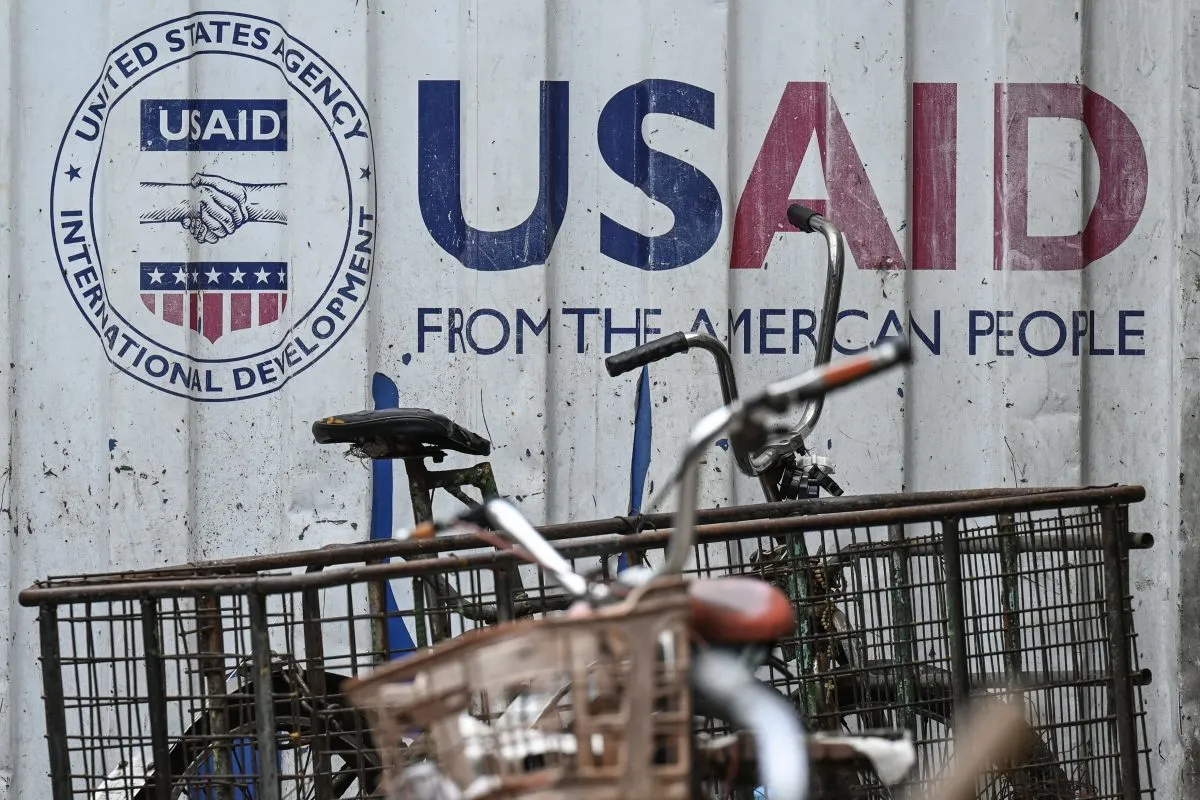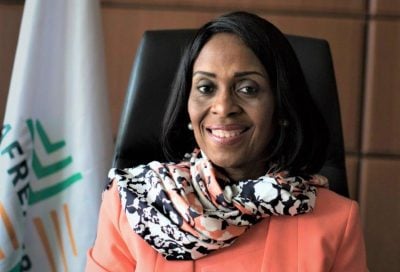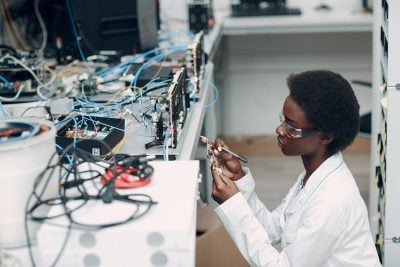At midnight on Friday 7 February thousands of staff at the US Agency for International Development (USAID) were due to be placed on “administrative leave”. Those working overseas on aid programmes have been told to prepare to return to the United States.
The Trump administration has already suspended almost all aid spending pending a 90-day review. The future of USAID, one of the world’s biggest aid agencies, is hanging by a thread.
Government action against USAID has been swift and crushing.
Agents from Elon Musk’s Department of Government Efficiency – established by a Trump executive order as an advisory body – were involved in a stand-off with USAID security last weekend as they attempted to gain access to servers where classified information is stored. USAID staff were locked out of their offices days later.
Secretary of State Marco Rubio was then appointed as acting administrator, effectively confirming the de facto takeover of the agency by the State Department, which announced the 90-day aid pause in late January.
The final blow came with a public statement confirming the mass suspension of USAID staff to take effect on Friday night.
African policymakers are closely watching the chaos unfolding in Washington DC, amid fears that the continent will feel the effects of the development agency’s defenestration and the suspension of aid.
Ethiopia was the top African recipient of USAID funding in 2023, with $1.37bn, followed by Somalia with $973m and DR Congo with 943m. Total US aid spending in Africa has hovered around $8bn in recent years.
“The decision by the US government to suspend aid comes at a time Africa is deep in debt and humanitarian appeals for the continent are woefully underfunded,” says Fati N’zi-Hassane, director of Oxfam in Africa.
“The move will leave millions more exposed to suffering and even death.”
“A massive blow”
The first Trump administration adopted a much more conventional position towards overseas aid. It continued programmes inherited from previous administrations and even created new bodies such as the US Development Finance Corporation (DFC), which is tasked with catalysing private sector investment for development goals.
It is unclear whether the implications of suspending aid, including emergency humanitarian programmes, have been thought through. An executive at a public health NGO told African Business that the 90-day pause in aid spending could have a disastrous effect on health programmes on the continent.
“Even brief disruptions in prevention, testing and treatment can lead to massive outbreaks and loss of life.”
Malaria No More, a US-based non-profit, warns that a 90-day aid freeze will impede the delivery of 15.6m life-saving drug doses to treat malaria, along with 48m doses of seasonal preventative medication.
The executive warned that “the humanitarian toll would be disastrous” if the aid freeze is followed by drastic cuts to longer-term spending, adding that the loss of expertise from laid-off staff and contractors would be a “massive blow”.
According to the Congressional Research Service, Trump does not have the legal authority to simply abolish USAID, which was established by an Act of Congress in 1961. However, by suspending almost all the agency’s workforce and appointing Rubio as its acting administrator, he has effectively neutered the organisation (although the legality of these actions is being challenged in the courts). To what extent some aid programmes will continue under a new organisational structure remains to be seen, though reports suggest that just 290 out of more than 10,000 staff are to be retained.
SDGs setback
Gutting USAID will have long-term implications for the continent’s development agenda and its achievement of the UN Sustainable Development Goals (SDGs), N’zi-Hassane warns.
“Africa is severely off-track in achieving the Sustainable Development Goals,” she points out.
“Such a drastic move to defund development and humanitarian initiatives would certainly push the continent’s quest for the SDGs even further behind schedule.”
Meanwhile, there are few obvious alternative sources of funding for programmes supported by USAID, says N’zi-Hassane.
“The US has long been the world’s largest donor of foreign development aid, including humanitarian assistance. Making up this funding gap will be very difficult. It’s also hard for others to step in when it’s not clear what programmes will resume and when.”
The impact could be particularly severe in crisis-torn countries that have come to heavily rely on US aid. In South Sudan, for instance, US aid made up 16% of GDP last year.
Ultimately, without other donors stepping in to fill the gap left by USAID, N’zi-Hassane warns that governments are likely to go even deeper into debt to fund life-saving programmes.
Power Africa future unclear
As well as providing aid for emergencies, the United States has played a key role in recent years in funding programmes designed to improve electricity access. The Power Africa initiative, a US government-led partnership coordinated by USAID that was launched in 2013 under the Obama administration, has helped create new connections for more than 200 million people.
Katie Auth, policy director at the non-profit Energy for Growth Hub and a former official at USAID and Power Africa, warns that Power Africa staff based in Pretoria are being flown back to the United States, seemingly putting the continuity of the initiative’s programmes under severe doubt.
“I don’t see how aid can possibly resume in 90 days,” she says, adding that the DFC and other US development agencies have also been left “in a chaotic state of uncertainty”.
“The uncertainty of when (or whether) US support might resume has huge negative effects. It pulls support out from under specific energy deals, leaving project sponsors unsure of whether they can count on expected US financing and assistance,” says Auth. She also notes that the move will harm American “credibility” and make it less likely that partners will seek to work with the US government in the future.
Daniel Kitwa, director of energy access finance at GreenMax Capital Group, agrees that a “loss of momentum” is likely in the short-term, as projects that rely on US funding struggle to remain afloat.
While he expects a “bumpy road” ahead, Kitwa is more optimistic over the longer term that energy developers will be able to adapt and find alternative sources of funding. He sees a “lot of opportunity” for African governments themselves to play a bigger role in enabling energy access, while warning that reforms are needed to unlock potential.
“There’s an internal introspection that’s needed,” says Kitwa, arguing that regional integration needs to be pursued more vigorously to enable economies of scale in the energy sector.
Lights out
Such a sudden and drastic change to the US approach in Africa, at a time when Washington is competing for influence with China and other geopolitical rivals, appears to many observers to be self-defeating.
A former senior official in Power Africa during the Obama and first Trump administrations told African Business that the programme has been “the only strong alternative that the US government has had to Chinese investment in Africa”.
The first Trump administration “loved Power Africa,” the official adds, noting that it had been used as a model for the DFC, which gives preference to funding projects that provide commercial opportunities to American companies. By contributing a modest amount of grant funding, the official says, Power Africa has shown it can mobilise vastly greater levels of private capital for energy projects.
But the future of Power Africa, like that of other US-funded programmes to promote economic development, is now deeply uncertain.
“If you spend five minutes explaining to anybody what it is, no matter what political background they have, they’ll all nod in agreement and say, ‘Wow, this is amazing, this is exactly how it should be’,” says the official. “But the question is whether you get five minutes.”
Want to continue reading? Subscribe today.
You've read all your free articles for this month! Subscribe now to enjoy full access to our content.
Digital Monthly
£8.00 / month
Receive full unlimited access to our articles, opinions, podcasts and more.
Digital Yearly
£70.00 / year
Our best value offer - save £26 and gain access to all of our digital content for an entire year!

 Sign in with Google
Sign in with Google 



